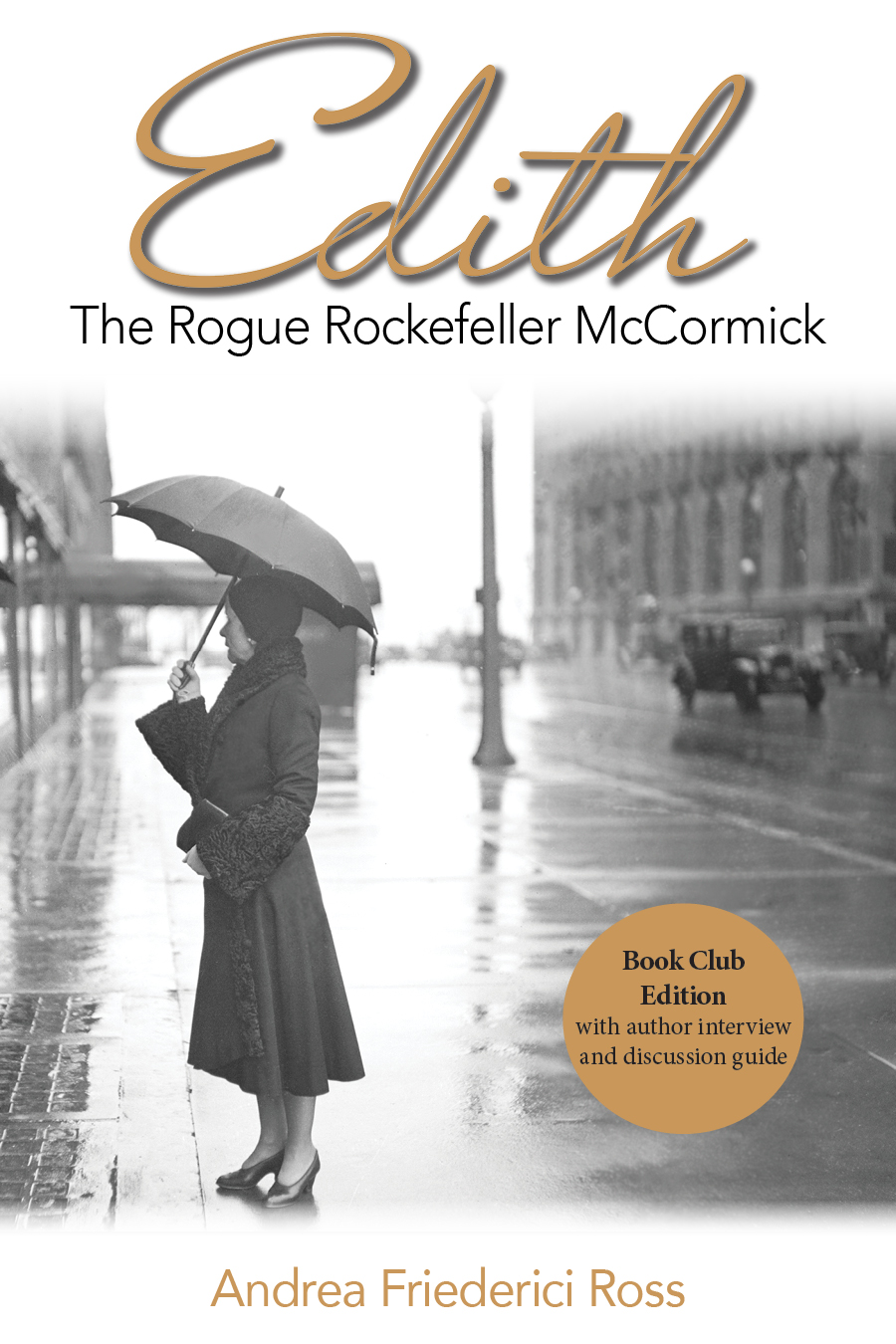By Dee Longfellow
 Andrea Friederici Ross is a librarian at Salt Creek School in Elmhurst, a seemingly simple means of gainful employment. But behind the scenes, Ross has been telling the story of an incredible woman in history who made significant contributions to the City of Chicago.
Andrea Friederici Ross is a librarian at Salt Creek School in Elmhurst, a seemingly simple means of gainful employment. But behind the scenes, Ross has been telling the story of an incredible woman in history who made significant contributions to the City of Chicago.
The book is called Edith: The Rogue Rockefeller McCormick and is currently available on Amazon. It is the story of Edith, the daughter of John D. Rockefeller, who was born in 1872 and later married Harold McCormick—the son of Cyrus McCormick known as the Reaper King, in 1895.
Harold spent three years in Iowa where he learned more about farm machinery, and then returned to the Chicago area to start the company McCormick-Harvester, which would eventually become International Harvester.
Life on Lake Shore Drive
With that success, they took up residence at 1000 Lake Shore Drive, kitty-corner from the Drake Hotel in downtown Chicago. It was a huge mansion with big iron gates. So many family members lived close by, the area was dubbed McCormickville.
Edith became the “Grande Dame,” hosting regular parties—often using a dinner set that was gifted to her sister from Napoleon.
She always hoped that upon her death, the home would be turned into a museum, but in the end, her belongings were all auctioned off.
Spending time in Zurich
Edith and Harold had five children, but two died rather young. Edith was so worried about having mental illness, she left for Zurich, where she was examined by a then-unknown psychiatrist and psychoanalyst Carl Jung.
She spent much of her time in Zurich supporting artists and the arts and culture community. She even financially supported James Joyce while he wrote his famous book Ulysses.
While she was in Zurich, unfortunately Harold fell in love with a bad opera singer. If that sounds familiar, Ross said it was the inspiration for the main story in the movie Citizen Kane—that was Harold McCormick. Harold divorced Edith, which she didn’t want, but he pushed hard, assembling a good legal team that included Clarence Darrow.
A brief real estate career
When Edith returned to the U.S., she started a real estate company. Women had the right to vote by then and more and more were finding their way in the world in ways other than housework. Edith sold lots to 16,000 people and earned $26 million—which was a great deal in 1927. (That’s the equivalent of $420,106,206 in 2022 dollars.)
Then, of course, came 1929 and the stock market crash. Edith was left holding thousands of acres of properties no one could buy.
When Edith was 59 years old, she was diagnosed with breast cancer and eventually died in 1932. She had an incredible intellect, and one of the things to be auctioned off was her library of 15,000 books. She knew a great many languages and wrote her own notes in the margins of the book—in the same native language as the book was written. It is said Edith was fluent in three languages before she was 10 years old, and as an adult, knew all major languages and was a scholar of ancient languages such as Sanskrit.
Edith had donated the land for Brookfield Zoo, but sadly with her death in 1932, she didn’t live to see the zoo open.
Ross earns writers award
Andrea Ross spent 10 years investigating the story of Edith Rockefeller McCormick, and it led to an award from the Chicago Writers Association, which named it the 2021 Book of the Year in Traditional Nonfiction.
“After working on Edith’s story for 10 years, it feels validating to receive this award,” Ross told the Independent in an interview. “I’m grateful to give Edith even more publicity!”
Ross also wrote a history of the Brookfield Zoo that they sell in the gift shop there.
“The history of Brookfield Zoo begins with Edith,” Ross said. “An unusual woman who made the zoo possible.”
For more information about the book, visit friedericiross.com. The book is available for purchase on Amazon.
